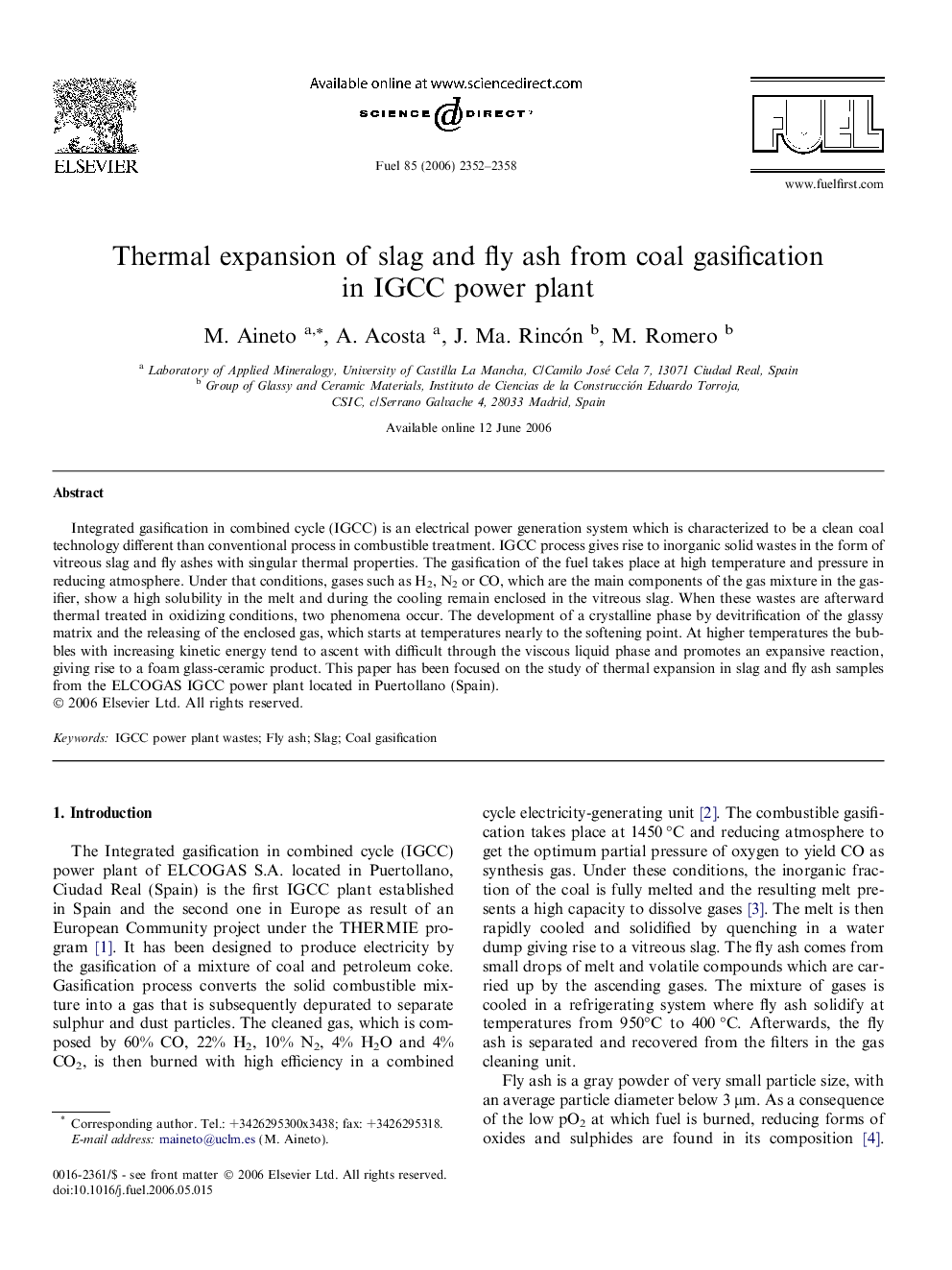| Article ID | Journal | Published Year | Pages | File Type |
|---|---|---|---|---|
| 208464 | Fuel | 2006 | 7 Pages |
Integrated gasification in combined cycle (IGCC) is an electrical power generation system which is characterized to be a clean coal technology different than conventional process in combustible treatment. IGCC process gives rise to inorganic solid wastes in the form of vitreous slag and fly ashes with singular thermal properties. The gasification of the fuel takes place at high temperature and pressure in reducing atmosphere. Under that conditions, gases such as H2, N2 or CO, which are the main components of the gas mixture in the gasifier, show a high solubility in the melt and during the cooling remain enclosed in the vitreous slag. When these wastes are afterward thermal treated in oxidizing conditions, two phenomena occur. The development of a crystalline phase by devitrification of the glassy matrix and the releasing of the enclosed gas, which starts at temperatures nearly to the softening point. At higher temperatures the bubbles with increasing kinetic energy tend to ascent with difficult through the viscous liquid phase and promotes an expansive reaction, giving rise to a foam glass-ceramic product. This paper has been focused on the study of thermal expansion in slag and fly ash samples from the ELCOGAS IGCC power plant located in Puertollano (Spain).
